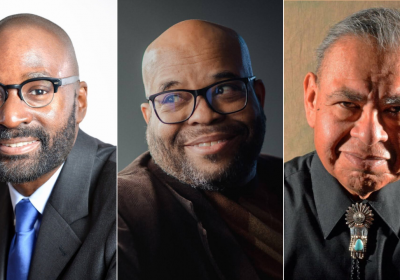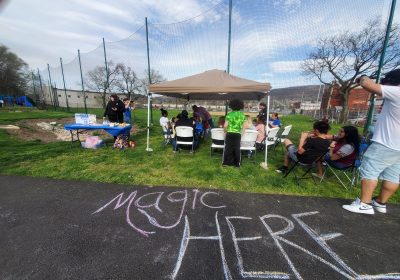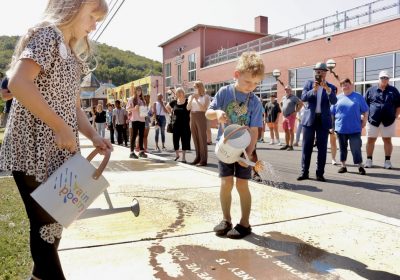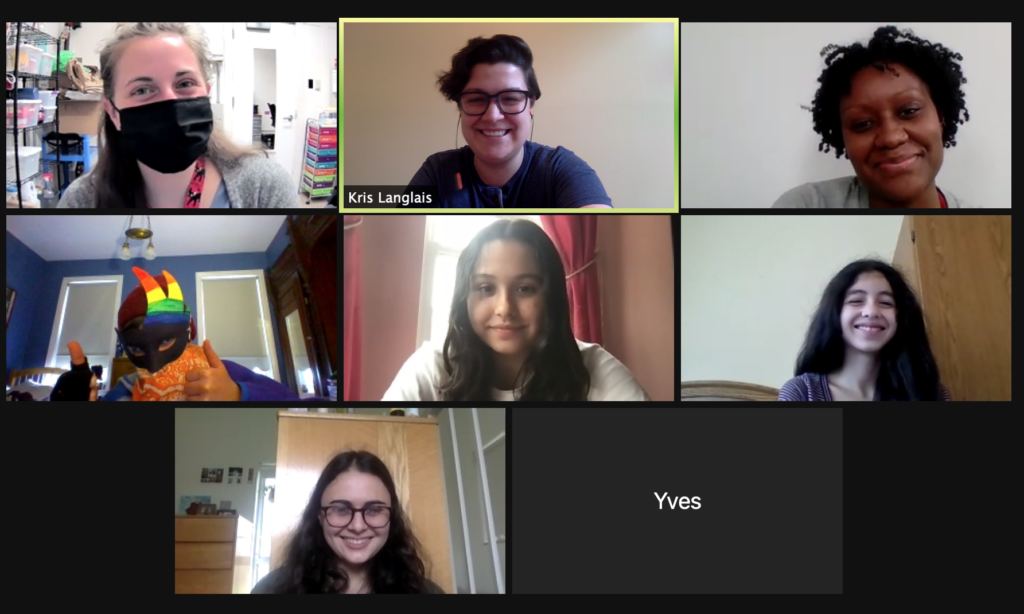
The shift to virtual schooling left many young people feeling isolated from their peers and lacking opportunities to engage in meaningful dialogue, or just relax and have casual conversations with friends. Across the state, Teen Reading Lounge staff have worked to address this challenge by providing creative and fun ways to keep kids connected virtually.
Teen Reading Lounge is an award-winning, nontraditional book club created by the Pennsylvania Humanities Council where teens, along with adult facilitators, create their own reading lists and design creative and civic engagement projects that connect to themes in their books.
Youth at the Parkway Central Library in Philadelphia are finding the weekly virtual meetings to be “best place in the universe.”
So far, activities have involved making art, creating funny memes, connecting through social media, and “just playing games, and laughing… and the deep conversations about exploring and excavating the things that come out of the books,” said Aurora Sanchez, facilitator of the group.
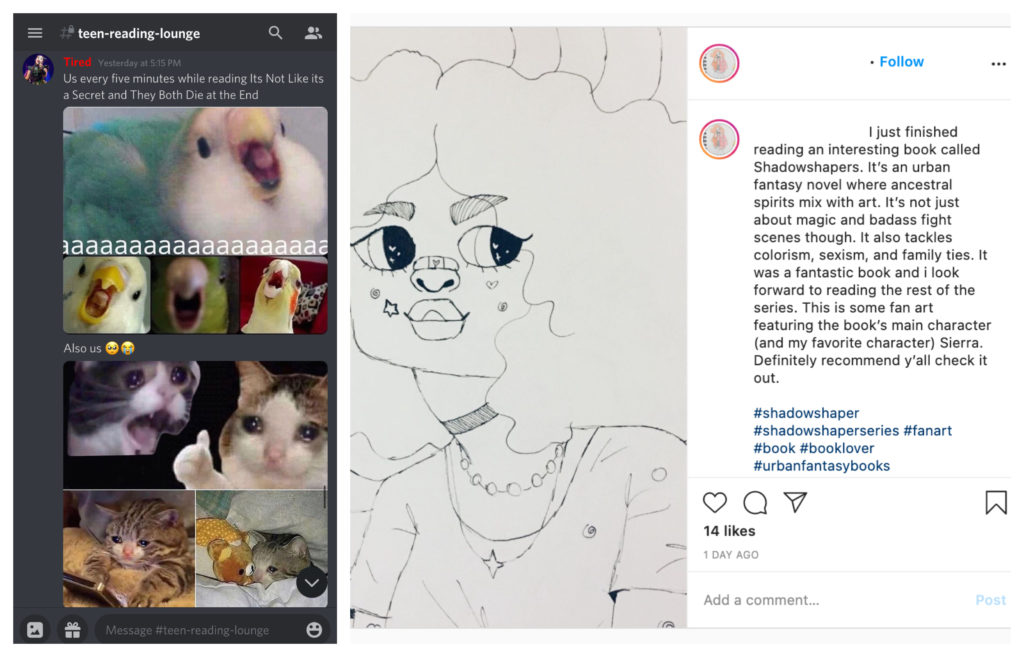
“When the first session was ending, we were like ‘it’s ending?’ Folks were like ‘no we want to keep going.’ Now here we are nine months later and we’ve been doing this pretty much every week,” said Kris Langlais, Teen Reading Lounge coordinator.
Below are the Parkway Central Library teens in their own words speaking out about how virtual humanities programming through Teen Reading Lounge is making a positive impact in their lives during the pandemic.
“It is the best place in the universe.”
“I don’t often see myself represented in books and we read a lot of books with Latino characters so that was very nice, and also learning more about Puerto Rico. I’m Puerto Rican so that was very cool, I liked that a lot.”
“I like reading all the books, we read a lot of different books in this club… and they made me think a lot, and I love books that really make you think.”
“It’s so cool having these virtual spaces.”
“I’m an only child, so I don’t have anyone to talk to or anyone around me, and it’s also fun because none of my friends love books or musical theater. So, it’s a space with people who have common interests.”
“I’ve been homeschooled for way longer than this pandemic has lasted so I didn’t know anyone who I could talk to about books (or Lin Manuel Miranda being a god). It’s been nice to talk with people about books and also cry over fictional characters.”
“It keeps me reading and I like that.”
“I keep coming back because it’s the most beautifully chaotic book club ever and I love you all so much.”
“The thing that is really valuable to me is that I get to come here every week, and just talk about books, and books, and lots of books (I really love books if that wasn’t clear already). I also get to talk about all of my theories, and get to make such cool stuff.”
Teen Reading Lounge is made possible by Library Services and Technology Act (LSTA) funds from the U.S. Institute of Museum and Library Services administered by the Office of Commonwealth Libraries, Department of Education, Commonwealth of Pennsylvania, Tom Wolf, Governor. The views, findings, conclusions, or recommendations expressed in this website do not necessarily represent those of the U.S. Institute of Museum and Library Services or the Department of Education, Commonwealth of Pennsylvania. Additional support is provided by the National Endowment for the Humanities, generous individuals, foundations, and corporations.
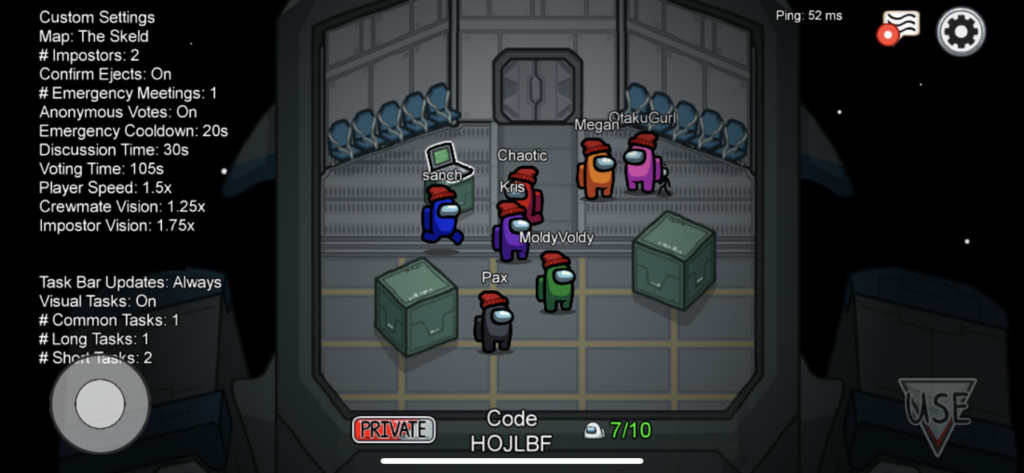
![[color – dark bg] PA SHARP FINAL FILES DB 72dpi [color - dark bg] PA SHARP FINAL FILES DB 72dpi](https://pahumanities.org/uploads/files/elementor/thumbs/color-dark-bg-PA-SHARP-FINAL-FILES-DB-72dpi-phgl7aimtfdpzt2rscvl43ksfv3asbbls19lsvuacw.jpg)
